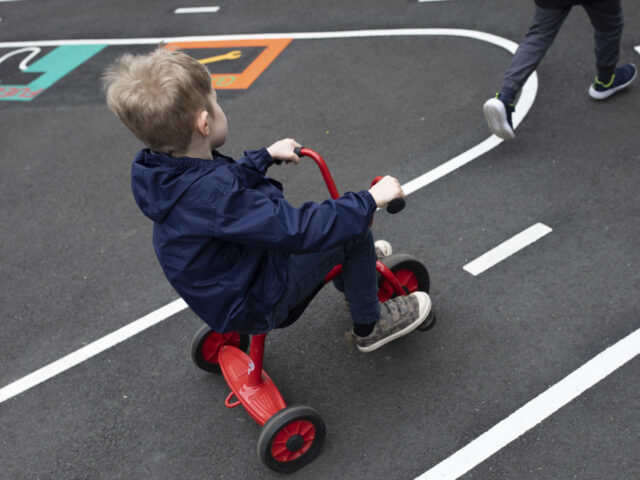The number of children requiring speech and language therapy across Britain has spiked after lockdown, research by the BBC has found.
Analysis conducted by BBC’s Shared Data Unit has found that the number of children requiring speech and language therapy in England has grown by 10 per cent compared to 2021.
Experts have largely put the increase down to children being kept from socialising with their friends during lockdown, with a number telling the UK state broadcaster that the figures reflect their own anecdotal experience.
According to the report, England saw a 10 per cent rise in the number of Year 1 pupils — who are often aged from five to six — requiring speech and language therapy, with the number growing from 38,560 in 2021 to 42,341 in 2022.
While the last number of years had seen the figure grow, the broadcaster notes that the 2022 increase was far larger than any previous year, and could not be put down to an increase in the number of children attending schools.
A similar rise has also reportedly occurred in Scotland, which has reportedly seen the number of children who require communication supports grow by around 20 per cent since 2020.
“It is a real worry,” the Chief Executive of the Royal College of Speech and Language Therapists, Kamini Gadhok, told the broadcaster, with the medical expert saying that the BBC’s research confirms anecdotal reports she had already been hearing.
“Our members have been telling us that they’ve been seeing a huge increase in the number of children referred to them,” Gadhok said. “We’ve hit a crisis point with services, where services are not able to meet the level of demand.”
Development of Young Children ‘Regressed’ During COVID Lockdowns – Report https://t.co/lOt7Up01Mf
— Breitbart London (@BreitbartLondon) April 4, 2022
The data compiled by the BBC mirrors past reports that children’s communication skills in the UK have been stunted by lockdown, with one study back in June suggesting some children have been starting elementary school in the country while unable to even say their own name.
Problems to do with children struggling to express themselves after living through lockdown are not limited to Britain however, with a number of other European nations reporting that they have also seen children suffer as a result of COVID restrictions.
For example, in Ireland, research has shown that babies born during the initial months of the pandemic are less capable of both speech and other forms of communication compared to their predecessors.
With lockdown babies also showing a greater ability to crawl, researchers have surmised that the disparity is down to children being cooped up at home during lockdown, unable to make connections with other human beings outside their households.
“Our research showed that [lockdown] babies were more likely to be crawling at the age of 12 months than their [baseline] counterparts, which might be because they were more likely to have spent more time at home and on the ground, with siblings home from school and parents working from home or isolating, rather than out of the home in cars and strollers,” Professor Jonathan Hourihane, one of the scientists at the centre of the research, said.
“However, lockdown measures may have impacted the scope of language heard and sight of unmasked faces speaking to them, while also curtailing opportunities to encounter new items of interest which might prompt pointing, and the frequency of social contacts to enable them to learn to wave,” he added.
Post-Lockdown Era: Children Entering Elementary School Unable to Say Own Name – Report https://t.co/YdM7gySKSU
— Breitbart London (@BreitbartLondon) June 13, 2022

COMMENTS
Please let us know if you're having issues with commenting.